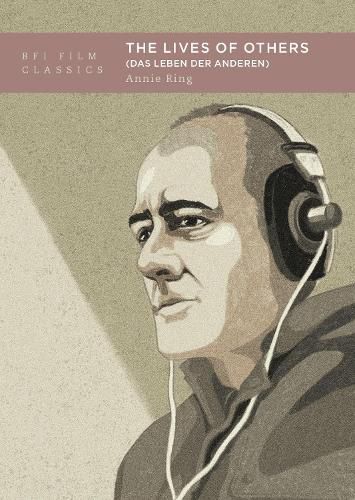Readings Newsletter
Become a Readings Member to make your shopping experience even easier.
Sign in or sign up for free!
You’re not far away from qualifying for FREE standard shipping within Australia
You’ve qualified for FREE standard shipping within Australia
The cart is loading…






This study offers a fresh approach to the remarkable German film The Lives of Others (2006), known for its compelling representation of a Stasi surveillance officer and the moral and ethical turmoil that results when he begins spying on a playwright and his actress lover.
Annie Ring analyses the film’s cinematography, mise-en-scene and editing, tracing connections with Hollywood movies such as Casablanca and Hitchcock’s Torn Curtain in the film’s portrayal of an individual rebelling against a brutal dehumanising regime. Drawing on archival sources, including primary research from the Stasi files themselves, as well as Enlightenment philosophies of art and Brecht’s theories on theatre dating from his GDR years, she explores the film’s strong but much-disputed claims to historical authenticity. She examines the way the film tracks the world-changing political shift that took place at the end of the Cold War - away from the collective dreams of socialism and towards the dreams of the private individual, arguing that this is what makes it at once widely appealing and fascinatingly problematic. In doing so, she highlights why The Lives of Others is a crucial film for thinking at the horizon between film and recent world history.
$9.00 standard shipping within Australia
FREE standard shipping within Australia for orders over $100.00
Express & International shipping calculated at checkout
This study offers a fresh approach to the remarkable German film The Lives of Others (2006), known for its compelling representation of a Stasi surveillance officer and the moral and ethical turmoil that results when he begins spying on a playwright and his actress lover.
Annie Ring analyses the film’s cinematography, mise-en-scene and editing, tracing connections with Hollywood movies such as Casablanca and Hitchcock’s Torn Curtain in the film’s portrayal of an individual rebelling against a brutal dehumanising regime. Drawing on archival sources, including primary research from the Stasi files themselves, as well as Enlightenment philosophies of art and Brecht’s theories on theatre dating from his GDR years, she explores the film’s strong but much-disputed claims to historical authenticity. She examines the way the film tracks the world-changing political shift that took place at the end of the Cold War - away from the collective dreams of socialism and towards the dreams of the private individual, arguing that this is what makes it at once widely appealing and fascinatingly problematic. In doing so, she highlights why The Lives of Others is a crucial film for thinking at the horizon between film and recent world history.